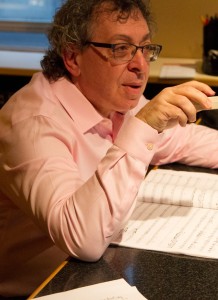What Is A Music Score “Doctor”?
This service is similar to a script doctor. Wikipedia defines a script doctor (also called a script consultant) as “a screenwriter or playwright hired by a film, television or theatre production to rewrite an existing script or polish specific aspects of it, including structure, characterization, dialogue, pacing, theme, and other elements. Script doctors generally do their work uncredited, for a variety of commercial and artistic reasons. They are usually brought in for scripts that have almost been “green-lit”, during the development and pre-production phases of a film, to address specific issues with the script, as identified by the financiers, production team, and cast.”
A Music Score “Doctor” is similar; I work on the issues surrounding musical content from a compositional perspective. Oftentimes the music is not working to the satisfaction of either the composer, director, music supervisor, studio, Broadway producer, or record company. Something is missing, and those involved in the process can’t identify the problems and solutions. Chances are it’s not the sound effects, samples, orchestration or any of the post production aspects.
Musical Content Is King
Musical content is king, and the editing of musical content is one of the most difficult challenges to deal with. Not all composers are able to take a step back and adequately edit their own work. Some may enjoy a second expert opinion. Directors and studios lack the tools to identify compositional weaknesses and propose solutions (i.e, they only know what they like).
The Solution
This is where I come in. I am a highly trained composer and have been composing my entire life. I also learned from a young age the compositional techniques that apply to any style of music combined with editing skills. Yes, how to make the music better. Specifically, where the weaknesses are, and how to fix them.
The Service Model And Confidentiality
My services occur in the background. I don’t receive credits, copyrights, or notoriety. I can work for the composer, director, studio, or music supervisor to solve problems. The names of composers and directors are kept in the strictest confidence. Composers are often concerned about their brand and are reluctant to make it known that they have sought third party compositional assistance. Directors are frustrated and don’t know how to get what they want; they know there is something wrong but lack the music tools for communication. Music supervisors are in the middle and lack the tools to fix the problems. Scores that can be fixed and salvaged are sometimes abandoned at a significant loss.
